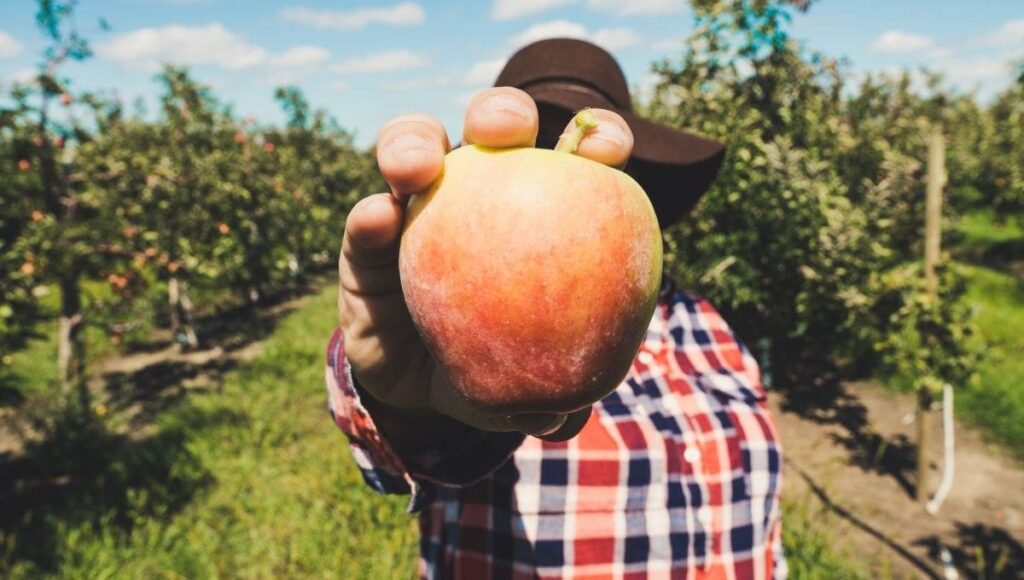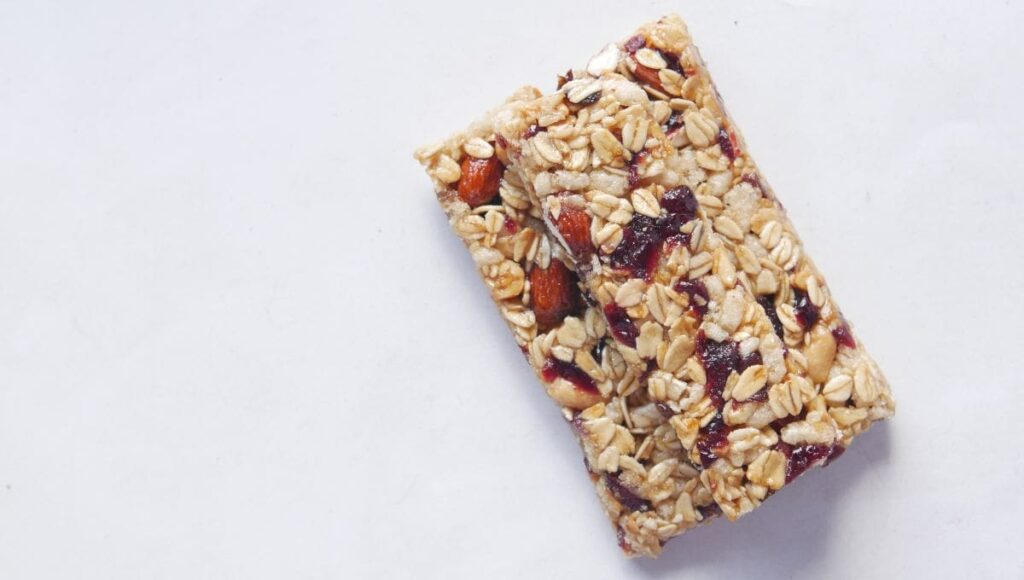Check out this quick guide of 5 so-called “healthy foods” that are secretly full of sugar that you should avoid.
Consuming sugar in moderation is generally considered acceptable for most people. However, excessive and frequent intake of added sugars has been linked to various health issues, making it important to be mindful of sugar consumption.
While it’s essential to be mindful of added sugars, it’s also important to differentiate between naturally occurring sugars in whole foods (such as fruits) and added sugars found in processed and sugary beverages. Moderation and balance, along with a focus on whole, nutrient-dense foods, contribute to a healthier overall diet.
So, while grapes, bananas and mangoes are some of the fruits with most sugar in them, we are not going to talk about them as they have natural sugar. We are focusing here on those foods produced by an industry that try hard to market these things as healthy – but behind the healthy label is added sugar that you probably didn’t even know about.
Read More: Can Fruit Make You Fat?
 Source: Hermes Rivera / Unsplash
Source: Hermes Rivera / UnsplashThe information in this article was based on a video shared by Dr. Jeffrey Peng, a skilled orthopedist and sports medicine specialist who runs a YouTube channel. He’s on a mission to make the latest medical info easy to understand for those keen on a healthy lifestyle. Dr. Peng focuses on non-surgical solutions for sports injuries, using advanced techniques like orthobiologics and ultrasound guidance. His expertise extends to treating osteoarthritis, tendinopathies, and various musculoskeletal issues. He holds board certifications in sports medicine and family medicine.
These healthy snacks are some people’s favourite, but they are secretly packed with more sugar than a dessert! These seemingly virtuous choices are not as beneficial as you think.
Let’s dive into five health foods that might be secretly loaded with sugar and explore better alternatives for smarter, sugar-conscious choices.
10 Ways to Easily Reduce Your Sugar Intake
5 “Healthy Foods” Filled with Sugar You Should Avoid
According to the American Heart Association, adults consume an average of 70 grams of added sugar every day—2 to 3 times the recommended amount. Excessive sugar intake is linked to various health issues, including obesity, type 2 diabetes, heart disease, and dental problems. Moreover, sugar can cause blood glucose levels to spike and crash, leading to energy fluctuations and cravings.
So it is important to know if you are eating too much sugar and where that source is coming from.
Read More: 8 Signs You Are Eating Too Much Sugar
1. Flavoured Yogurt:
Flavoured yogurts, even those marketed as low-fat or Greek, can be deceiving. For example, a fruit-on-the-bottom strawberry yogurt can contain a whopping 12 grams of added sugar, and peach-flavoured Greek yogurt can have 9 grams. A healthier alternative is plain, unsweetened yogurt, to which you can add fresh fruits, a splash of honey, or a sprinkle of nuts and seeds.
2. Protein and Granola Bars:
While protein and granola bars are convenient and portable, some are essentially disguised candy bars. Cliff Bars, for instance, can have 15 to 16 grams of added sugar per serving. Look for bars with minimal added sugars and wholesome ingredients, such as Lara Bar, which boasts only 3 grams of added sugar in its chocolate chip cookie dough flavour.
 Source: Towfiqu barbhuiya on Unsplash
Source: Towfiqu barbhuiya on UnsplashHow To Save Money and Make Your Own Delicious Protein Bars At Home
3. Bottled Green Juices and Smoothies:
Bottled green juices and smoothies are a go-to choice for quick nutrient-packed options. However, the sugar content in some of these drinks can be alarmingly high. Naked Juice’s Green Machine flavour, for instance, contains a total of 53 grams of sugars. Opt for fresh juice bars or cold-pressed juices with lower sugar content for a healthier alternative.
4. Health Cereals:
Despite being marketed as whole grain, fibre-rich, and fortified, many health cereals are loaded with added sugars. Honey Nut Cheerios and Honey Bunches of Oats are examples, with 12 and 8 grams of added sugars per serving, respectively. Consider alternatives like steel-cut oats, topped with natural sweeteners and fresh fruits, for a nutritious breakfast without excessive sugar.
5. Instant Oatmeal Packets:
Instant oatmeal packets, despite the health benefits of oats, can be culprits for added sugars. Quaker’s Maple and Brown Sugar flavour has 12 grams of added sugar, while the Apples and Cinnamon flavour has 8 grams. Opt for minimally processed foods like steel-cut oats, and enhance flavour with natural sweeteners and nutritious toppings.
Read More: What Sugar Does to Your Body
 Source: Suzy Hazelwood on Pexels
Source: Suzy Hazelwood on PexelsIn our quest for healthier choices, the final piece of the puzzle lies in fostering a greater awareness of our dietary habits. Rather than instilling fear or advocating for the complete elimination of these foods, the goal is to empower individuals to make informed and mindful choices. By reading nutrition labels with a discerning eye, we equip ourselves with the knowledge needed to navigate the often deceptive world of packaged foods.
Choosing unprocessed or minimally processed alternatives is a pivotal step in steering clear of hidden sugars. Whole foods not only provide essential nutrients but also reduce the risk of consuming excessive and unnecessary sweeteners. Additionally, being mindful of portion sizes ensures that we enjoy these snacks in moderation, preventing unintended spikes in sugar intake.
These seemingly small changes can have a profound impact on our overall health and well-being. Adopting a sugar-conscious approach to our diet is not about deprivation but rather about making smarter choices that align with our health and wellness goals. It’s an invitation to savour the richness of natural flavours, appreciate the true essence of nutritious ingredients, and embark on a journey towards a more balanced and mindful way of eating.
In essence, the power to transform our dietary habits lies in our hands. By embracing these principles—careful label reading, opting for minimally processed alternatives, and mindful portion control—we pave the way for a healthier and more vibrant lifestyle. So, let’s embark on this journey together, making informed choices that not only benefit our bodies but also contribute to a sustainable and conscious approach to nutrition.
Watch the video below from Dr. Jeffrey Peng to fully understand these 5 healthy foods filled with sugar that you should be avoiding.
What Happens To Your Body If You Stop Eating Sugar For 2 Weeks?
Consuming high amounts of sugar poses a myriad of health risks, making it detrimental to overall well-being. Here are some key reasons why excessive sugar intake is considered harmful:
- Weight Gain and Obesity:
- Sugar is calorie-dense and provides little to no nutritional value. Consuming too much sugar regularly can contribute to an imbalance in energy intake, leading to weight gain and an increased risk of obesity.
- Type 2 Diabetes:
- High sugar intake, especially in the form of added sugars and sugary beverages, has been linked to an increased risk of developing type 2 diabetes. Excessive sugar consumption can lead to insulin resistance, where the body’s cells don’t respond effectively to insulin, a hormone crucial for blood sugar regulation.
- Cardiovascular Issues:
- Diets rich in added sugars have been associated with an elevated risk of cardiovascular diseases. High sugar intake may contribute to elevated blood pressure, inflammation, and unfavorable lipid profiles, all of which are risk factors for heart disease.
- Dental Problems:
- Sugar is a primary contributor to tooth decay. Bacteria in the mouth feed on sugar, producing acids that erode tooth enamel and lead to cavities. Regular consumption of sugary foods and drinks can result in poor oral health.
- Increased Risk of Fatty Liver Disease:
- Excessive sugar consumption, particularly fructose, has been linked to non-alcoholic fatty liver disease (NAFLD). The liver converts excess sugars into fat, which can accumulate and contribute to liver dysfunction.
- Insulin Resistance and Metabolic Syndrome:
- High sugar intake has been associated with the development of insulin resistance, a condition where cells have difficulty responding to insulin. This can contribute to the development of metabolic syndrome, characterized by abdominal obesity, elevated blood pressure, and abnormal lipid profiles.
- Increased Inflammation:
- Diets high in sugar may promote inflammation in the body. Chronic inflammation is linked to various health conditions, including autoimmune diseases, arthritis, and an increased risk of certain cancers.
- Energy Fluctuations and Cravings:
- Foods high in added sugars can cause rapid spikes and subsequent crashes in blood glucose levels. This rollercoaster effect can lead to increased feelings of fatigue, irritability, and cravings for more sugary foods, perpetuating a cycle of unhealthy eating.
- Negative Impact on Mental Health:
- Some studies suggest a potential link between high sugar consumption and an increased risk of mental health issues, including depression and anxiety. The exact mechanisms are complex, but the impact of sugar on brain function and mood is an active area of research.
In summary, the negative health effects of consuming high amounts of sugar extend beyond mere concerns about weight gain. From metabolic disturbances to increased risks of chronic diseases, the cumulative impact of excessive sugar intake underscores the importance of making informed and mindful dietary choices.
6 Signs You Are Suffering From Protein Deficiency
The Ultimate Supplements Guide – All You Need to Know
Image Sources
- can fruit make you fat: Hermes Rivera / Unsplash
- Protein bar (1): Towfiqu barbhuiya on Unsplash
- pexels-suzy-hazelwood-2523659: Suzy Hazelwood on Pexels
